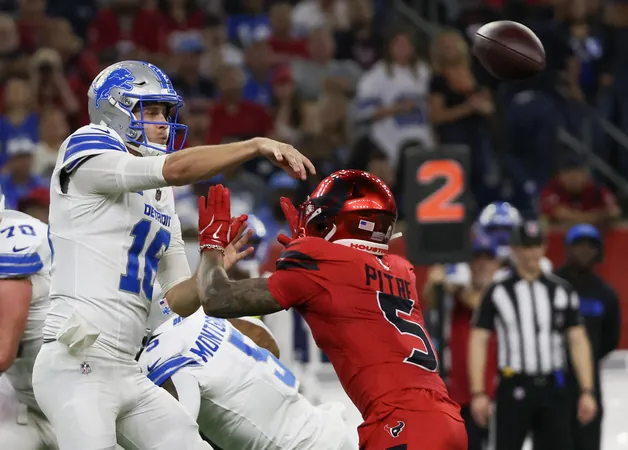
Universal Music Strikes Back: Lawsuit Targets ‘Llady Gaga’ and Other Knockoff Artists!
2024-11-05
Author: Jia
Overview of the Lawsuit
In a bold move to combat rampant piracy, Universal Music Group (UMG) has filed a lawsuit against French music firm Believe and its US subsidiary TuneCore. The lawsuit claims that the companies are distributing pirated music under cleverly misspelled artist names like "Kendrik Laamar," "Arriana Gramde," "Jutin Biber," and the infamous "Llady Gaga." This shocking revelation sheds light on a troubling practice that has been exploiting the popularity of well-known artists.
Allegations Against Believe
UMG's lawsuit asserts that Believe is fully aware of its business model’s reliance on copyright infringement, alleging the company has ignored the blatant piracy occurring within its music catalog. With over 2,000 employees across more than 50 countries and a reported revenue of $518 million in the first half of 2024, Believe claims to support independent artists and labels in the digital space. However, the lawsuit suggests that Believe has grown its profits by distributing counterfeit versions of the most popular songs globally.
Distribution of Counterfeit Music
The lawsuit details a troubling pattern where Believe partners with platforms like TikTok, YouTube, Spotify, and Apple Music. UMG’s accusations highlight that Believe knowingly facilitates fraudsters who use its distribution services to circulate unauthorized copies of songs. This has led to a music environment saturated with discrepancies, where fraud is disguised as legitimate artistry.
Examples of Infringement
Among the examples listed in the lawsuit are repackaged, remixed, and even "sped up" versions of hits from superstars like Rihanna and Billie Eilish. Specifically, Rihanna's iconic track "S&M" is said to have been released under the fake name "Rihamna," while Lady Gaga’s beloved "Bad Romance" and Billie Eilish's "TV" were manipulated and attributed to the bizarrely named entity "INDRAGERSN."
UMG's Demands
As the legal battle unfolds, UMG is seeking injunctions and the highest statutory damages of $150,000 for each infringed work, with a staggering collection of 1,380 potentially unauthorized tracks documented. UMG anticipates discovering even more instances of infringement as the case progresses.
Response from Believe
In response, Believe has vowed to contest the lawsuit vigorously. They released a statement asserting their commitment to copyright protection and their ongoing efforts to tackle piracy in the music industry. Believe emphasizes its longstanding presence in the digital music sector, boasting prestigious "Tier 1 status" and partnerships with major music platforms.
Significance of the Case
Yet the stakes are high. UMG maintains that Believe has distributed millions of sound recordings to digital service providers—outpacing the number of legitimate tracks from both major and independent labels. Furthermore, UMG highlights that Believe has allegedly manipulated content management systems on platforms like YouTube to claim royalties for UMG's copyrighted recordings, creating a chaotic situation where rightful owners are deprived of earnings.
Conclusion
As the lawsuit progresses, it raises significant questions about the future of digital music distribution and the lengths companies will go to maintain their bottom lines amidst widespread piracy. Stay tuned—this legal showdown could redefine the landscape of music publishing and distribution forever!




 Brasil (PT)
Brasil (PT)
 Canada (EN)
Canada (EN)
 Chile (ES)
Chile (ES)
 España (ES)
España (ES)
 France (FR)
France (FR)
 Hong Kong (EN)
Hong Kong (EN)
 Italia (IT)
Italia (IT)
 日本 (JA)
日本 (JA)
 Magyarország (HU)
Magyarország (HU)
 Norge (NO)
Norge (NO)
 Polska (PL)
Polska (PL)
 Schweiz (DE)
Schweiz (DE)
 Singapore (EN)
Singapore (EN)
 Sverige (SV)
Sverige (SV)
 Suomi (FI)
Suomi (FI)
 Türkiye (TR)
Türkiye (TR)